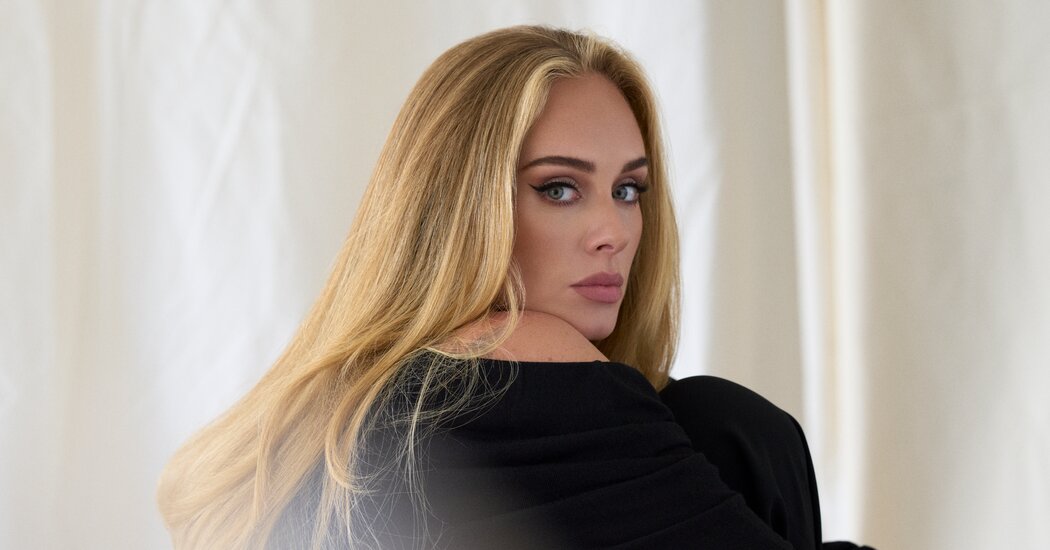
Another computer confection is “All Night Parking,” a time warp of old and new, which juxtaposes florid, speed-fingered, cascading samples from the jazz pianist Erroll Garner with a trap-like drum-machine beat, while Adele shows off jazzy syncopations as she sings about 21st-century lust: “Every time that you text/I want to get on the next flight home.”
But the album is also, at times, candidly and unsettlingly documentary. Adele sings to her son in “My Little Love,” offering reassurances and apologies: “I’m so sorry if what I’ve done makes you feel sad,” she offers in a low R&B croon. The track interrupts — and nearly derails — its moody, undulating, Marvin Gaye-ish groove with digital voice notes that Adele recorded at tearful low points and in conversations with her son. “Mommy’s been having a lot of big feelings recently,” she tells him. “I feel a little trapped, like, um, I feel a bit confused, and I feel like I don’t really know what I’m doing.”
The discomfort is part of the point. On “30,” Adele complicates the clear pop roles of lover, heroine, victim or fighter. One thing that’s absent from “30” is the kind of righteous revenge song, like “Chasing Pavements” and “Rolling in the Deep,” that the younger Adele would hurl at exes. On “30,” Adele more calmly extricates herself from a romance in “Woman Like Me,” a low-fi bossa nova produced by Inflo (Dean Josiah Cover) from the British collective Sault, wondering how a suitor could be so lazy and complacent when a little more consistency could win her over.
But more often, Adele’s songs present her as her own target and her own unfinished self-improvement project. The album’s core style is secular gospel, with Adele’s voice gathering itself over hymnlike piano chords, seeking faith not in a higher power but in herself. In “Hold On,” another collaboration with Inflo, she sings, “I am my own worst enemy/Right now I truly hate being me” as a faraway choir urges her to hold on, and her voice rises to a kind of prayer: “May time be patient/Let pain be gracious.”




